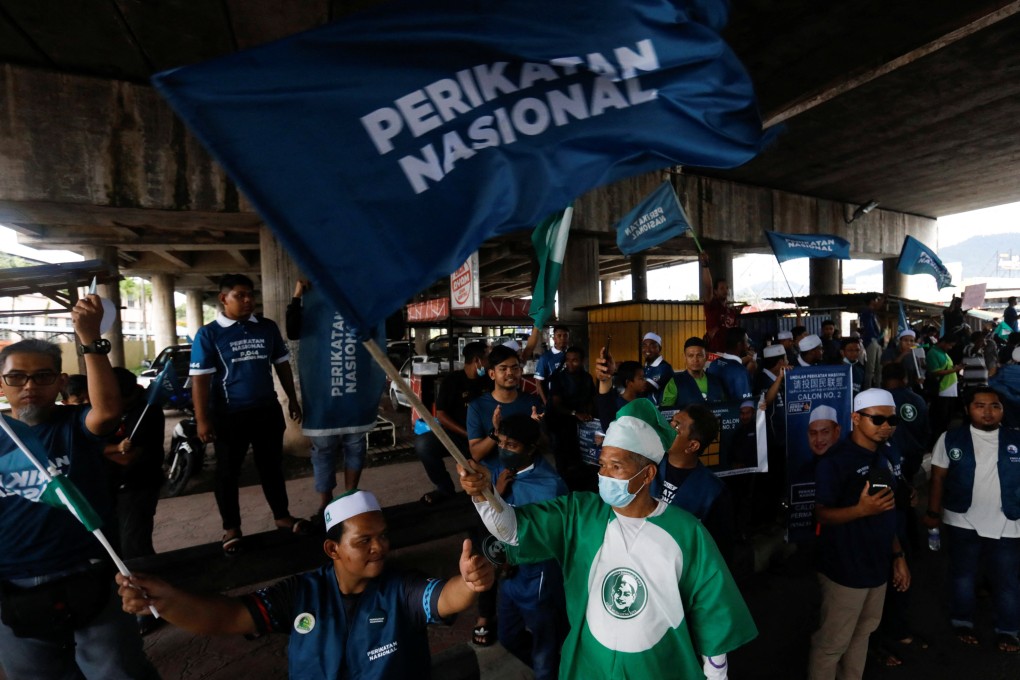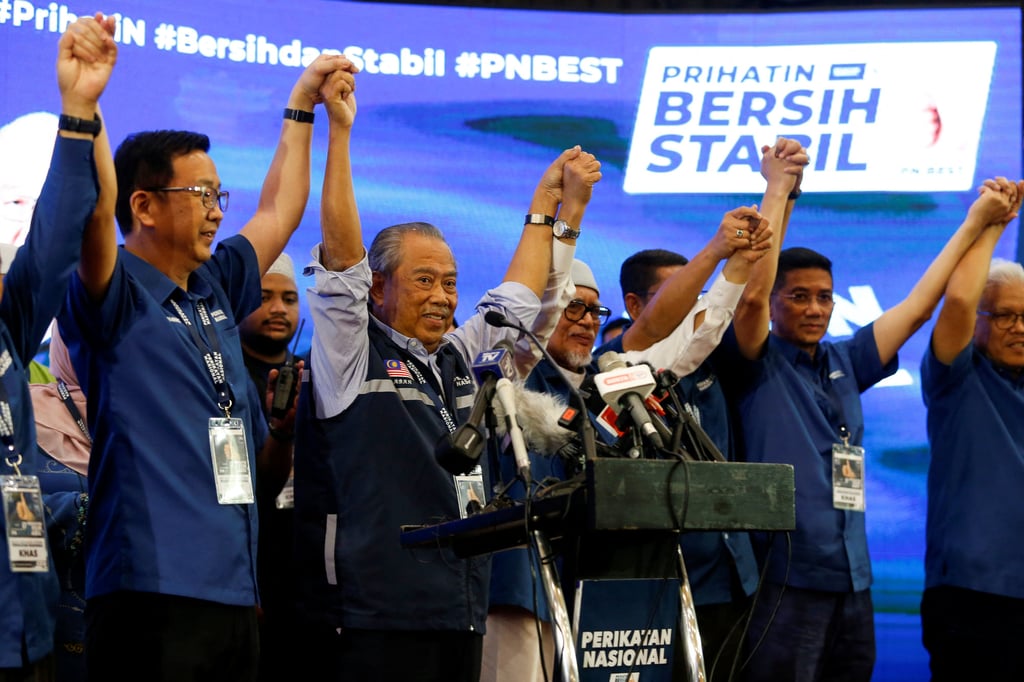Asian Angle | Malaysia election 2022: Islamists rise but next leader must govern for all, not just the majority
- Results seen as rejection of scandal-tainted Umno, as conservative Malay voters turn to ‘natural alternative’ Perikatan Nasional
- Coalition of PH, BN and Borneo parties would better represent Malaysia’s various ethno-religious communities, but should not exclude or marginalise opposition

Various opinion polls had predicted the PN surge, but most still expected the election to be primarily a fight between PH and the ruling Barisan Nasional (BN), controlled by the United Malays National Organisation (Umno) party that dominated Malaysian politics until its loss to PH in 2018.

BN won only 30 seats this time and was wiped out completely in four northern states – Kelantan, Terengganu, Kedah and PAS’ latest capture Perlis – while the unexpected revolt by Malay voters also reduced the number of its seats in both Pahang and Perak.
While PH won more than 80 seats and trounced BN in Johor and Selangor, many of its leaders, including Anwar’s charismatic daughter Nurul Izzah, became casualties of the PN wave in the north. The coalition’s ambition to return to power was, however, sustained by the unexpected winning of as many as 11 seats in the Borneo states of Sarawak and Sabah.
The remaining seats went to various Borneo blocs: 22 to the ex-BN Gabungan Parti Sarawak (GPS), six to PN-affiliated Gabungan Rakyat Sabah (GRS), and five to three other minor parties. Results were delayed in two other seats and voting postponed in another.
